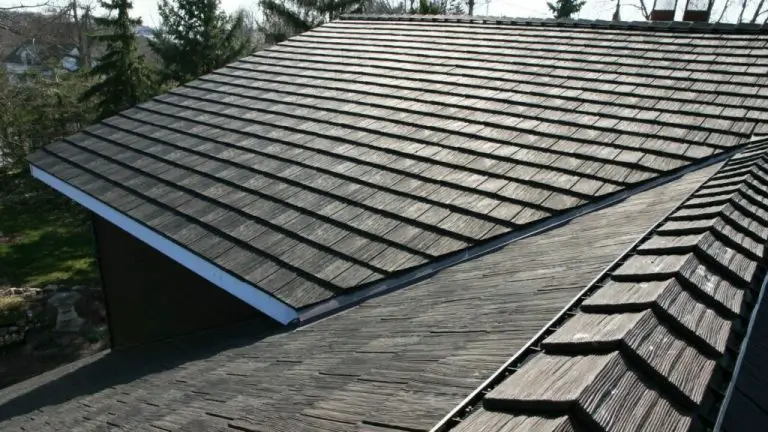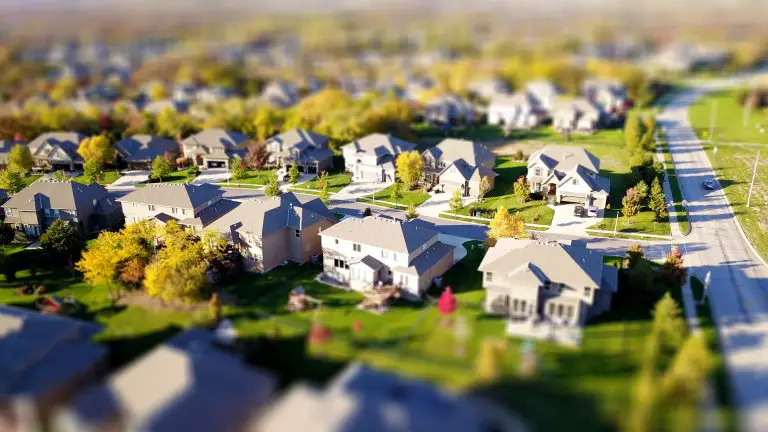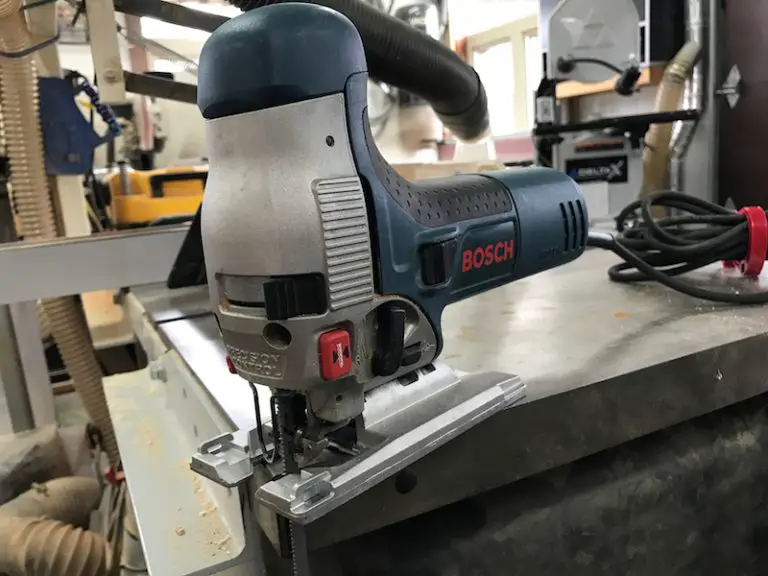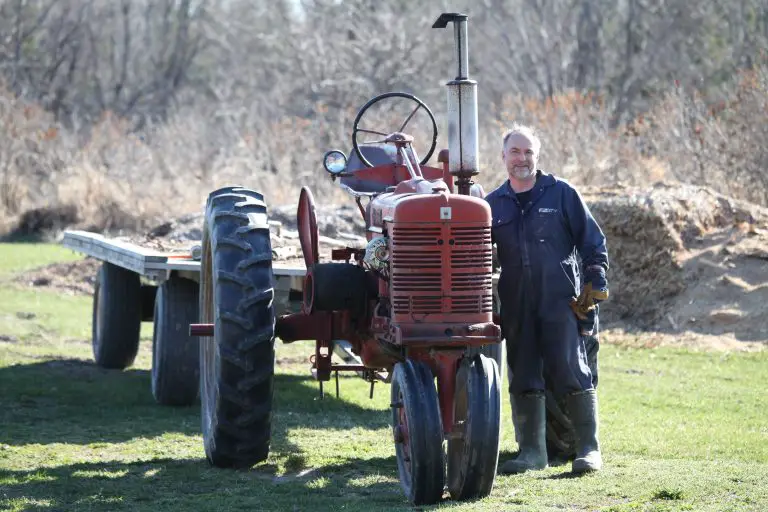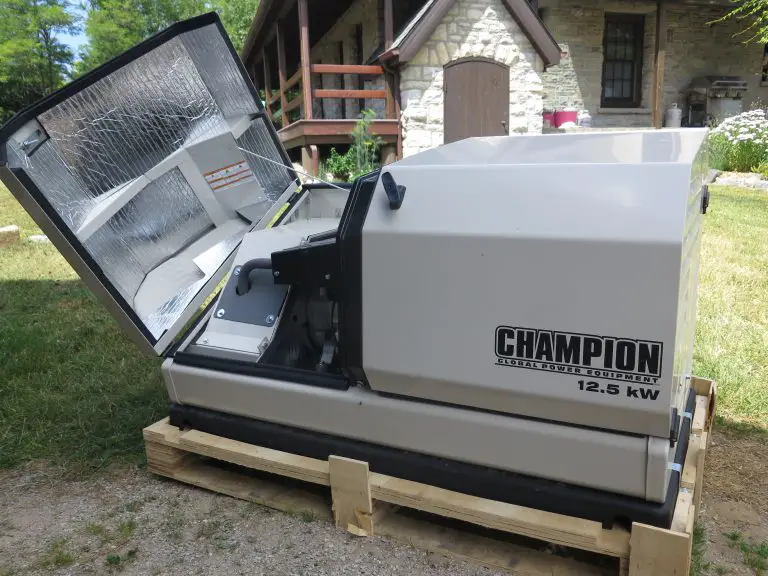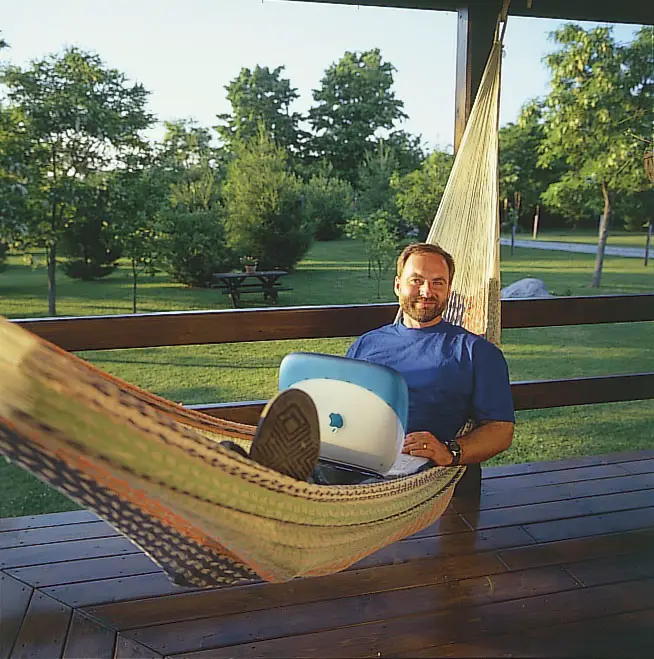
A while back one of my kids started studying the industrial revolution for school, and he asked me a question:
“Dad, do you think the industrial revolution made the life of ordinary people better or worse?”
It’s a good question, and I suspect the various answers you’d receive from different people would say as much about the person answering as it does the situation. The question also got me thinking about another revolution that’s affecting the way ordinary people can earn a living today, and it’s definitely an improvement.
Changing Options
The industrial revolution of the 1800s drew people from the countryside into the city in large numbers, transforming them from farm laborers and home industry workers into factory workers. This trend did a lot of things, but one of the most obvious is that it moved jobs from the country to the city. It also made new winners and new losers. Today the potential to reverse that trend exists and is gathering steam. I think this is good news. Whether or not it actually happens to any significant extent depends on how individuals see the new reality of the “internet revolution” and make use of it for productive reasons.
Just like the industrial revolution, the internet revolution is making new winners and new losers. Let me give you an unfolding example using a little place called Gore Bay, Ontario, the place where we do most of our shopping here on Manitoulin Island, Canada 12 miles from our home.
A Case Study
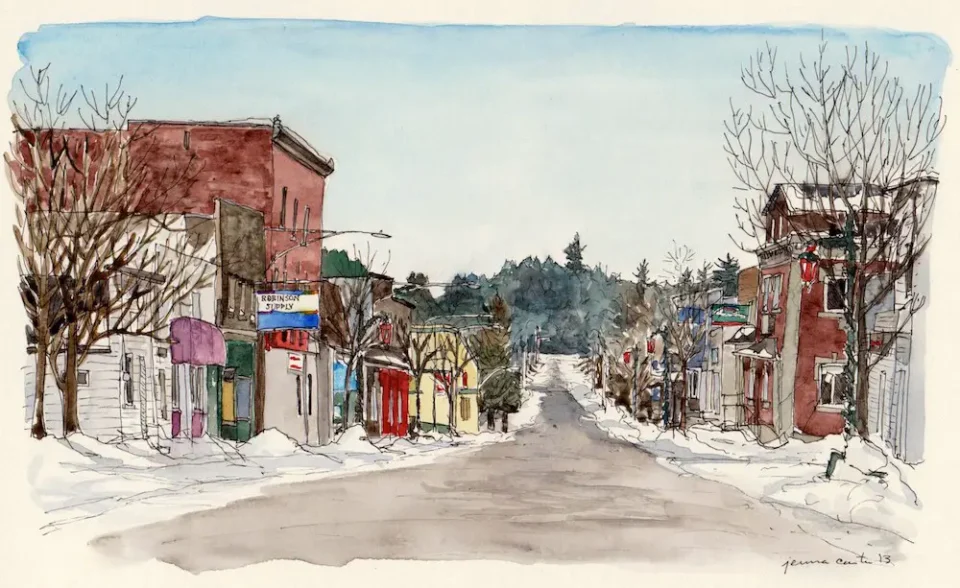
Gore Bay became a town in 1890, and its current population of 900 is more than it’s ever been. Walk down the main street – Meredith Street shown above – and you’ll see old, substantial buildings that were originally built to serve much more economic activity than they do today. Ask any old timer and they’ll tell you that every shop along Meredith Street had a thriving business in it. Saturday nights, in particular, were a beehive of shopping activity, with stores open until midnight each week, movies shown on a portable screen in the community hall, and people socializing while business thrived. Not so today.
Fast forward to 2024, and Gore Bay’s business scene is struggling, even though the local population is larger than it’s ever been, even though each person today buys and consumes much more than they did during, say, the 1950s. Strictly speaking, the economic health of Gore Bay should be greater than it’s ever been because we’re buying more than ever, except for one thing.
Geography-Free Shopping
The downturn in local business began with the trend to off-island shopping that started in the 1970s and 80s. Even today, somehow people still think they save money driving 2 1/2 hours each way to the nearest major city to save 20% on groceries. It’s an error of accounting, but quite common. But off-island shopping is nothing compared to the trend of online-shopping. Now you can save much more than 20% without ever starting your car. At the click of a mouse the post office is fast becoming the one place in town where greater value of goods change hands than most other businesses in Gore Bay. Buying online is part of the internet revolution, and it’s definitely taking sales away from businesses large and small (both in the country and the city). These are the losers, but the revolution also offers new possibilities for economic growth and new winners.
Think Beyond Your Location
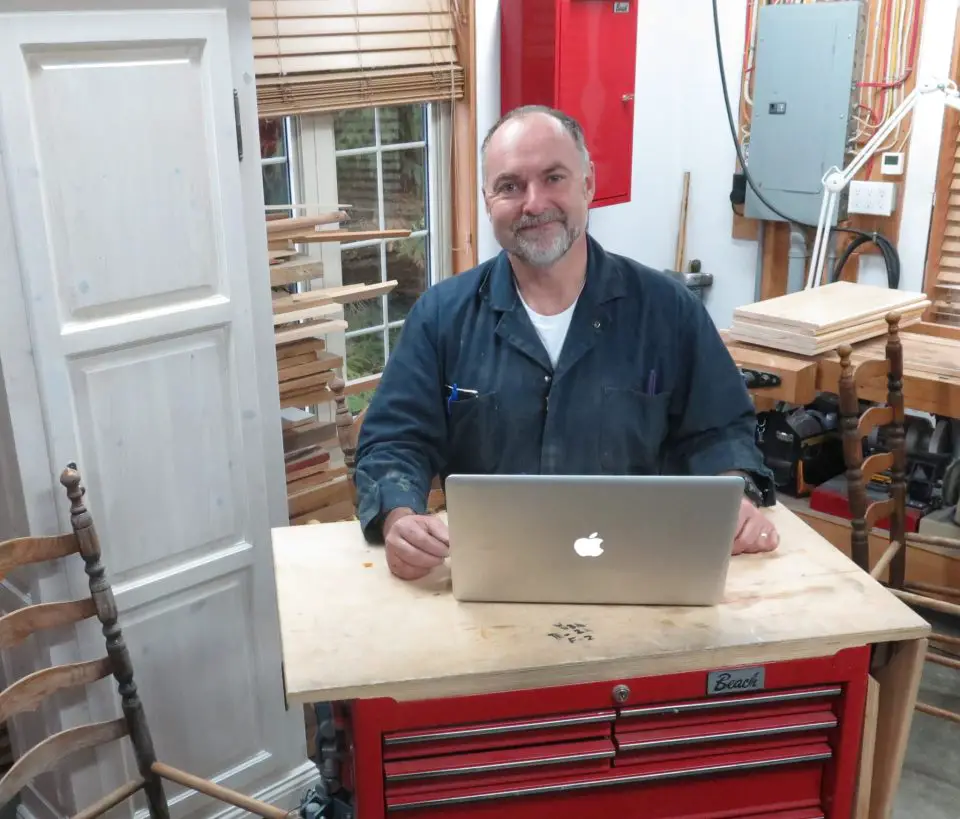
Thriving economically in rural areas like Manitoulin Island is much easier when drawing business from beyond the local market, placing more emphasis on serving the whole world with the help of the internet. You can do this as an individual, but also as a small business. You can also do this wherever you live. What little places like mine need is a new understanding that the internet steals sales and jobs in one way, but it offers new possibilities in return. That’s something the industrial revolution never did. It was a one-sided trend that removed power from the little guy in exchange for the possibility of a better life in the city. By contrast, the internet revolution both threatens the livelihood of many communities, but it also offers new and profitable opportunities for both little places and big ones.
The economic life of my family, for instance, is based on internet work I’ve developed since the early 1990s here at the end of Bailey Line Road. Over the 30+ years I’ve been doing this, my work has changed quite a bit, beginning exclusively with articles that ended up in paper magazines and newspapers, to now publishing most of my work digitally online, including photos, videos, courses and virtual online classes.
Winner or Loser?
The internet means ordinary people have a chance to do productive work independently of where they happen to be. This is what I call “geography-free” work and it’s a possibility for many. Need some examples? People in big city Canada are enjoying some of the world’s finest grass-fed beef from Manitoulin because it’s being sold to them online. The head of the information architecture department at a large international company now lives and works online from a small town on Manitoulin Island. An art studio in our area has moved from seasonal sales to year-round sales with their online presence. The possibilities are wide open to the imagination. Go on LinkedIn, for instance, and you’ll find a constant stream of great work that’s completely geography free. It’s common to see remote opportunities that pay $50k to $100k per year for people with the right skills.
Years from now, a teenager somewhere might ask his dad: “Did the internet revolution make the life of ordinary people better or worse?” As with so many things in life, it all depends. It’s not so much about what happens to us, but rather how we deal with it.







